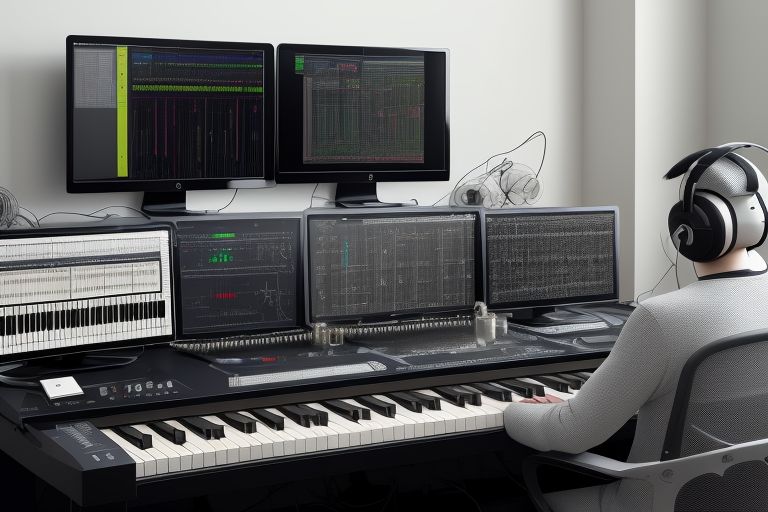
AI Composers The Role of Machine Learning in Music Creation
The intersection of artificial intelligence and music composition is forging a new frontier in the creative industries. Machine learning is not only transforming how music is composed but also how it is experienced and interacted with by artists and audiences alike. This comprehensive exploration delves into the role of AI composers, the technologies driving this innovation, the benefits and challenges it presents, and what the future holds for AI in music creation.
Understanding AI in Music Composition
AI composers refer to machine learning algorithms and systems designed to create music. Sometimes called algorithmic composers, these AI systems analyze vast amounts of musical data, learning from existing musical compositions to generate new music that can be stylistically similar or entirely original.
Technological Foundations of AI Composers
Machine Learning Models
At the core of AI music composition are advanced machine learning models such as deep neural networks, which can learn patterns in music and generate compositions based on learned data. These models are trained using large datasets of music across various genres, allowing them to understand and apply complex musical structures and elements such as melody, harmony, rhythm, and dynamics.
Natural Language Processing
Some AI composers utilize techniques from natural language processing (NLP), drawing parallels between the syntax in language and the structured patterns in music. This approach helps in generating music that not only sounds pleasing but also maintains logical musical progression, much like a well-formed sentence in a language.
Benefits of AI Composers
1. Enhancing Creativity
AI composers can serve as powerful tools for human musicians, offering new ways to inspire creativity. They can suggest alternative melodies, harmonies, and rhythms, pushing artists to explore musical paths they might not consider otherwise.
2. Accessibility and Democratization of Music Creation
AI music tools can lower the barriers to music creation, allowing individuals without formal musical training to compose music. This democratization makes music creation more accessible to a broader audience, fostering diversity in musical expression.
3. Efficiency and Speed
AI can significantly speed up the music composition process, which is particularly beneficial in industries like film and gaming, where the ability to produce high-quality music quickly can be a substantial advantage.
Challenges and Ethical Considerations
Despite the benefits, the rise of AI composers also presents several challenges and ethical considerations:
1. Authorship and Originality
One of the most pressing questions in the realm of AI music is the issue of authorship. Determining the extent of human versus AI contribution to a piece of music raises complex copyright and originality issues.
2. Cultural Homogenization
There’s a concern that AI, trained on prevalent datasets, might lead to cultural homogenization, where the diversity of less represented musical traditions could be undermined.
3. Economic Impact on Musicians
As AI technologies become more capable, there is also worry about their impact on professional musicians’ livelihoods, potentially replacing human creators in some scenarios.
The Future of AI in Music
Looking forward, the role of AI in music is set to grow. Innovations in AI technology could lead to more sophisticated and nuanced music composition tools that continue to challenge our concepts of creativity and authorship. Furthermore, as the technology matures, we can expect more collaborative efforts where AI and human creativity coexist, complementing each other’s strengths.
The integration of machine learning into music composition is a groundbreaking development that is reshaping the music industry. While it brings a host of benefits such as enhanced creativity, accessibility, and efficiency, it also presents significant challenges and ethical dilemmas. The future of AI composers will depend largely on how these issues are navigated, but one thing is clear: the fusion of AI and music is here to stay, continually evolving the art of music creation.
For those interested in the cutting-edge of music and technology, AI composers represent a fascinating area of growth, blending the boundaries between technology and traditional creativity.


